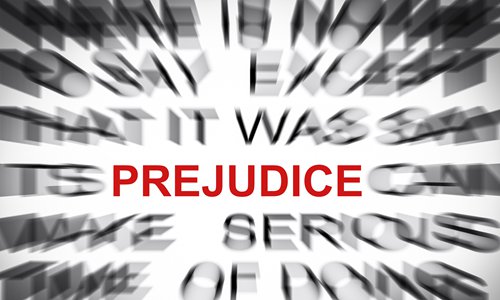HOME >> OPINION
Western media smacks of double standards
Source:Global Times Published: 2019/10/22 18:18:40

Photo: IC
In the recent few weeks, some Western companies and individuals have acted in line with the Chinese mainland's stance. For example, US gaming company Blizzard punished an e-sports player who voiced his support for the riots in Hong Kong, and Apple has taken off HKmap.live, an app that can help rioters in Hong Kong spot police locations, from its App Store. The Guardian on October 13 published an article headlined "Western tech giants must stop kowtowing to China's bullying." The writer of the article thinks such moves by Western companies amount to "kowtowing to China's bullying." Many other media outlets in the West share similar views, not hesitating to say that Western companies are capitulating before China.
Such views typically reflect such media's pride and prejudice based on Western centralism. While they want to make as much profit as they can in China, they make indiscreet and irresponsible criticism of the country.
They tend to believe that things they are not allowed to do in Western countries can be done in China, as long as these are in keeping with their values of Western centralism.
Here is an example: Westerners sold opium in China in the 19th century, calling it "free trade." Nearly 180 years have passed and the West is still immersed in its delusionary thinking. It views the situation in a distorted perspective.
Another Western media outlet recently expressed a view similar to The Guardian article. The Atlantic, an American magazine, published an article on October 12, saying, "It amounts to a kind of 'values tariff' on the companies and individuals with which China does business."
The author invented the concept of "values tariff," trying to say that if Western companies want to do business with China, they need to follow Chinese values.
These media outlets should understand that if Western countries want to seek privileges, act willfully and make profits in China without observing Chinese law or respecting China's core interests, they are bound to pay a high price. The concept of "values tariff" reflects their morbid sense of superiority.
Western media's criticism reflects that they have been arrogant with China.
But this does not mean that they are more advanced than China. They are just being ignorant, capricious and reckless.
China and the West need time to communicate and coordinate on this. In this process, there need to be rules. First, Western countries cannot make profits in China and slander it at the same time. Second, people who make comments that have gone too far should pay the price. Besides, Chinese people also need to understand that it is unrealistic to expect Western media to change their extreme stance in a short time.
Viewpoints supporting Hong Kong riots will be opposed on the Chinese mainland. The logic is the same as the US opposing viewpoints supporting terrorism on its soil. Some Western media outlets, taking freedom of speech as an excuse, are misleading, or even distorting perception toward China in Western societies. The problem is the lack of a framework of rules for them.
On one hand, China should continue to welcome and tolerate informed opinion and objective criticism; on the other, we need to deal with the situation more strictly when China's core interests are involved.
The article was compiled by Global Times reporter Li Qingqing based on an interview with Shen Yi, head of Fudan University's Cyberspace Governance Research Institute. liqingqing@globaltimes.com.cn
RELATED ARTICLES:
Posted in: VIEWPOINT